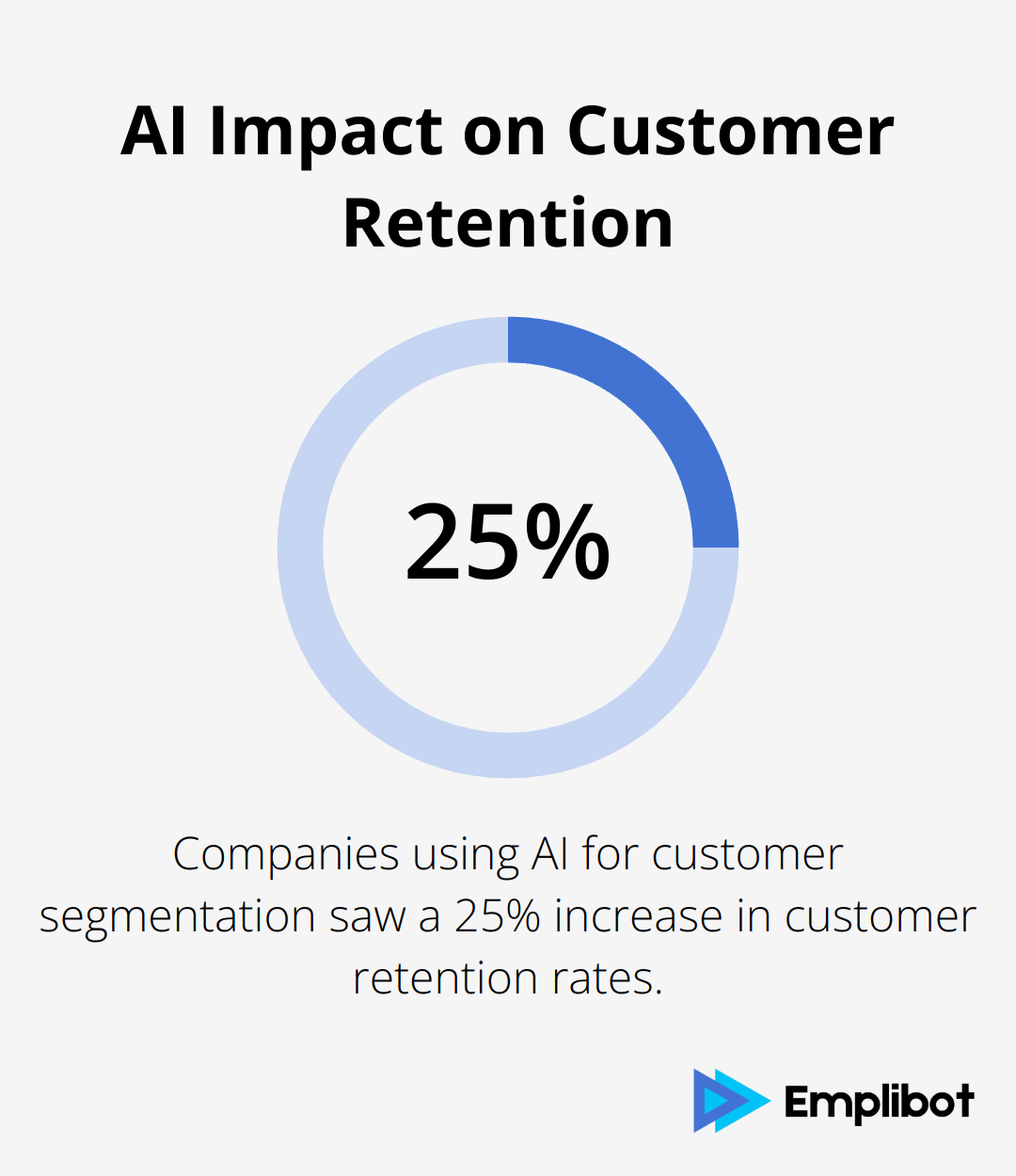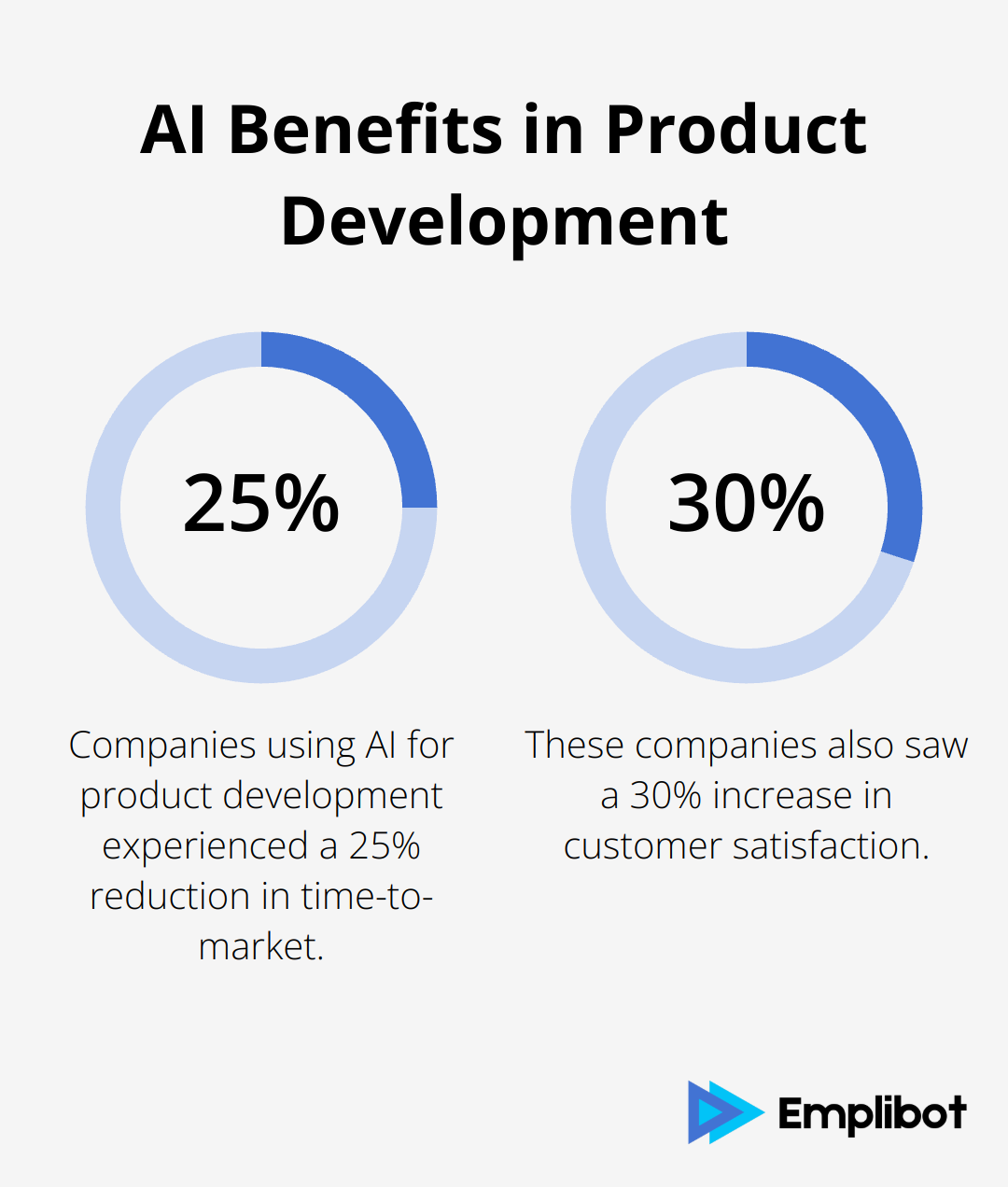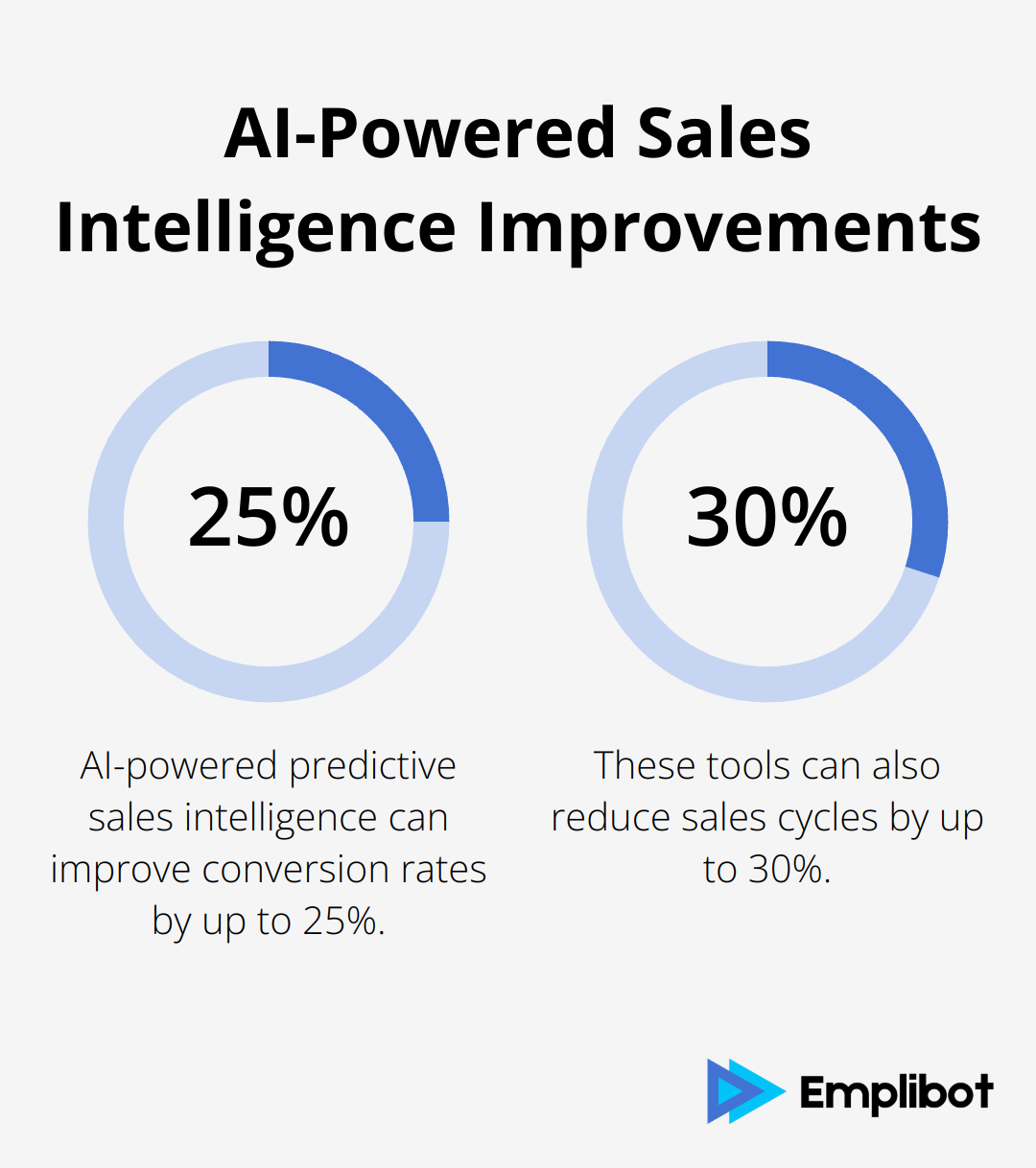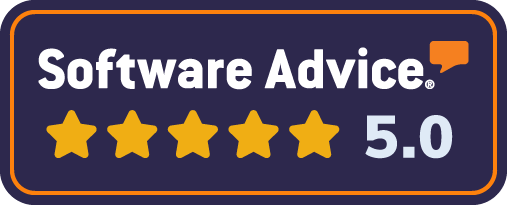AI-powered go-to-market strategies are revolutionizing how businesses approach their market entry and growth. These innovative techniques harness the power of artificial intelligence to streamline processes, enhance decision-making, and drive results.
At Emplibot, we’ve seen firsthand how AI transforms every aspect of go-to-market planning and execution. This comprehensive guide will explore the key areas where AI is making a significant impact, from market research to product development and sales optimization.
Contents
ToggleHow AI Transforms Market Research and Analysis
AI has revolutionized market research and analysis, offering unprecedented insights and efficiency. This transformation impacts every aspect of data-driven decision-making, from customer segmentation to competitive intelligence and market forecasting.
AI-Powered Customer Segmentation
AI algorithms now create hyper-specific customer profiles by analyzing vast amounts of data. These profiles incorporate behavioral patterns, purchase history, and social media activity (beyond basic demographics).
A Salesforce study found that companies using AI for customer segmentation experienced a 25% increase in customer retention rates. This precision enables businesses to tailor their offerings and communications with remarkable accuracy.

Machine Learning in Competitive Intelligence
Machine learning algorithms analyze competitor websites, social media, and financial reports in real-time. This continuous monitoring provides businesses with actionable insights almost instantaneously.
AI-driven competitive intelligence enhances business strategy and decision-making by increasing efficacy, efficiency, and creativity.
Predictive Analytics for Market Opportunities
AI’s ability to forecast trends and identify emerging opportunities stands out as its most exciting application in market research. By analyzing historical data, current market conditions, and external factors (like economic indicators), AI predicts future market trends with remarkable accuracy.
McKinsey & Company reported a 15-20% increase in the ability to identify new market opportunities before competitors for businesses using AI for predictive analytics. This foresight allows companies to position themselves strategically, developing products and services that meet future demand.
Implementation Challenges and Solutions
While the benefits of AI in market research are clear, implementation can present challenges. Data quality, integration with existing systems, and staff training are common hurdles. However, solutions exist:
- Invest in data cleansing and management tools
- Choose AI platforms that offer seamless integration
- Provide comprehensive training programs for staff
The Future of AI in Market Research
As AI continues to evolve, we can expect even more sophisticated applications in market research. Natural language processing will improve sentiment analysis, while advanced machine learning models will offer more accurate predictions.
The adoption of AI-driven strategies in market research isn’t just about staying competitive-it’s about leading the pack. AI has vast potential in marketing, aiding in proliferating information and data sources, improving software’s data management capabilities, and designing more effective strategies. As we move forward, the next logical step is to examine how AI enhances product development and positioning, leveraging these deep market insights to create truly innovative offerings.
How AI Enhances Product Development and Positioning
AI transforms product development and positioning, enabling companies to create more targeted, innovative offerings. This data-driven approach leads to products that better meet market needs and stand out from the competition.
Optimizing Product Features with AI
AI helps to gain insights faster and more accurately than traditional methods. It can identify patterns, trends, and sentiments in customer responses. This approach helps companies prioritize development efforts and allocate resources more effectively.
A study by MIT Sloan Management Review found that companies using AI for product development experienced a 25% reduction in time-to-market and a 30% increase in customer satisfaction. These improvements result from AI’s ability to quickly process and interpret large datasets, revealing patterns and preferences that human analysts might miss.

Netflix (a company that uses AI extensively) analyzes viewing habits and preferences to inform decisions about original content production. This strategy has resulted in highly successful shows and a 93% customer retention rate.
Identifying Unique Selling Propositions
AI tools excel at uncovering unique selling propositions (USPs) by analyzing competitor offerings, customer sentiment, and market gaps. Natural language processing algorithms sift through customer reviews, social media posts, and support tickets to identify unmet needs or pain points.
IBM’s customer experience examples showcase how organizations can improve customer loyalty and grow value. This insight can lead to marketing campaigns that increase sales in targeted product categories.
AI-Powered A/B Testing
Automated A/B testing powered by AI allows companies to rapidly iterate on messaging and positioning. Machine learning algorithms can test multiple variables simultaneously, quickly identifying the most effective combinations.
Booking.com runs over 1,000 A/B tests simultaneously using AI. This approach has led to a 3.5% increase in conversions (translating to millions in additional revenue).
To implement AI-powered A/B testing effectively:
- Define clear objectives and metrics
- Use AI to generate multiple test variations
- Implement real-time analysis to identify winning combinations quickly
- Continuously refine and retest based on results
Balancing AI and Human Creativity
While AI offers powerful capabilities for product development and positioning, maintaining a balance between data-driven insights and human creativity is essential. The most successful strategies combine AI’s analytical power with human intuition and experience.
As we explore the next frontier of AI-powered go-to-market strategies, we’ll examine how AI optimizes marketing and sales execution, further enhancing the customer journey and driving business growth.
How AI Supercharges Marketing and Sales
AI revolutionizes marketing and sales execution, enabling businesses to create more personalized experiences, engage customers effectively, and predict sales outcomes with unprecedented accuracy.
Personalized Content at Scale
AI-powered content creation tools transform the game for marketers. These tools analyze user interests and search behavior to generate highly targeted content that resonates with specific audience segments. By delivering tailored content, businesses can significantly improve their marketing effectiveness.
Spotify’s Discover Weekly playlist exemplifies AI-driven personalization. By analyzing listening habits, the feature creates custom playlists for each user, resulting in a 30% increase in listening time for those who use it.
To implement AI-driven content personalization:
- Collect and analyze customer data from multiple touchpoints
- Use AI tools to segment your audience based on behavior and preferences
- Create content templates that AI can easily customize
- Test and refine your personalization strategy continuously
AI-Powered Customer Engagement
Intelligent chatbots and virtual assistants transform customer service and engagement. These AI-powered tools handle a wide range of customer inquiries, provide personalized recommendations, and even complete transactions.
H&M’s chatbot acts as a personal stylist, asking customers about their style preferences and offering outfit suggestions. This approach has led to a 70% increase in customer engagement and a 20% boost in average order value.
To effectively implement AI-powered customer engagement:
- Identify the most common customer inquiries and pain points
- Train your AI assistant on your brand voice and product knowledge
- Integrate the AI assistant with your CRM and e-commerce platforms
- Update and improve the AI regularly based on customer interactions
Predictive Sales Intelligence
AI eliminates the guesswork from sales forecasting and lead scoring. By analyzing historical data, customer interactions, and market trends, AI predicts which leads are most likely to convert and when.
Predictive sales intelligence tools can improve conversion rates by up to 25% and reduce sales cycles by up to 30%. AI enables sellers to focus on the most promising leads and optimize their sales strategies.

To leverage AI for sales forecasting and lead scoring:
- Ensure your CRM data is clean and up-to-date
- Identify the key indicators of a qualified lead in your business
- Use AI tools to analyze past sales data and identify patterns
- Refine your AI model continuously based on actual sales outcomes
The integration of AI in marketing and sales execution is not just a trend-it’s becoming a necessity for businesses looking to stay competitive. AI can dramatically improve content personalization, customer engagement, and sales predictions. However, it’s important to note that AI is a tool to enhance human capabilities (not replace them). The most successful strategies will always combine the analytical power of AI with human creativity and intuition.
Final Thoughts
AI-powered go-to-market strategies have transformed how businesses approach market entry and growth. These strategies offer unprecedented levels of personalization, efficiency, and predictive power across market research, product development, and sales execution. As AI evolves, we expect it to take on more complex decision-making roles, enabling businesses to respond to market changes with incredible speed and precision.
Businesses should start with a clear strategy when implementing AI in their go-to-market approach. They need to identify specific areas where AI can add the most value to their operations and invest in quality data collection and management. Gradual integration of AI tools into existing workflows, starting with pilot projects, will help test and refine the approach.
Emplibot automates content creation and distribution, helping businesses leverage AI to boost their online presence. Our platform handles everything from keyword research to SEO optimization, exemplifying how AI can streamline go-to-market strategies. Businesses that embrace these technologies will find themselves at a significant advantage, setting new standards in customer engagement and business growth.

![AI-Powered Go-to-Market Strategies [Full Guide]](https://wp.emplibot.com/wp-content/uploads/emplibot/ai-powered-go-to-market-strategies-1754118505-768x456.jpeg)
![AI-Powered Market Analysis [2025 Guide]](https://wp.emplibot.com/wp-content/uploads/emplibot/ai-powered-market-analysis-1754032060-768x456.jpeg)

![AI Marketing: Lead Generation [Guide]](https://wp.emplibot.com/wp-content/uploads/emplibot/ai-marketing-lead-generation-1753859292-768x456.jpeg)
![AI Marketing: Predictive Lead Scoring [Guide]](https://wp.emplibot.com/wp-content/uploads/emplibot/predictive-lead-scoring-1753772819-768x456.jpeg)

![Google Autocomplete for Keyword Research [Guide]](https://wp.emplibot.com/wp-content/uploads/emplibot/google-autocomplete-for-keyword-research-1753600089-768x456.jpeg)


